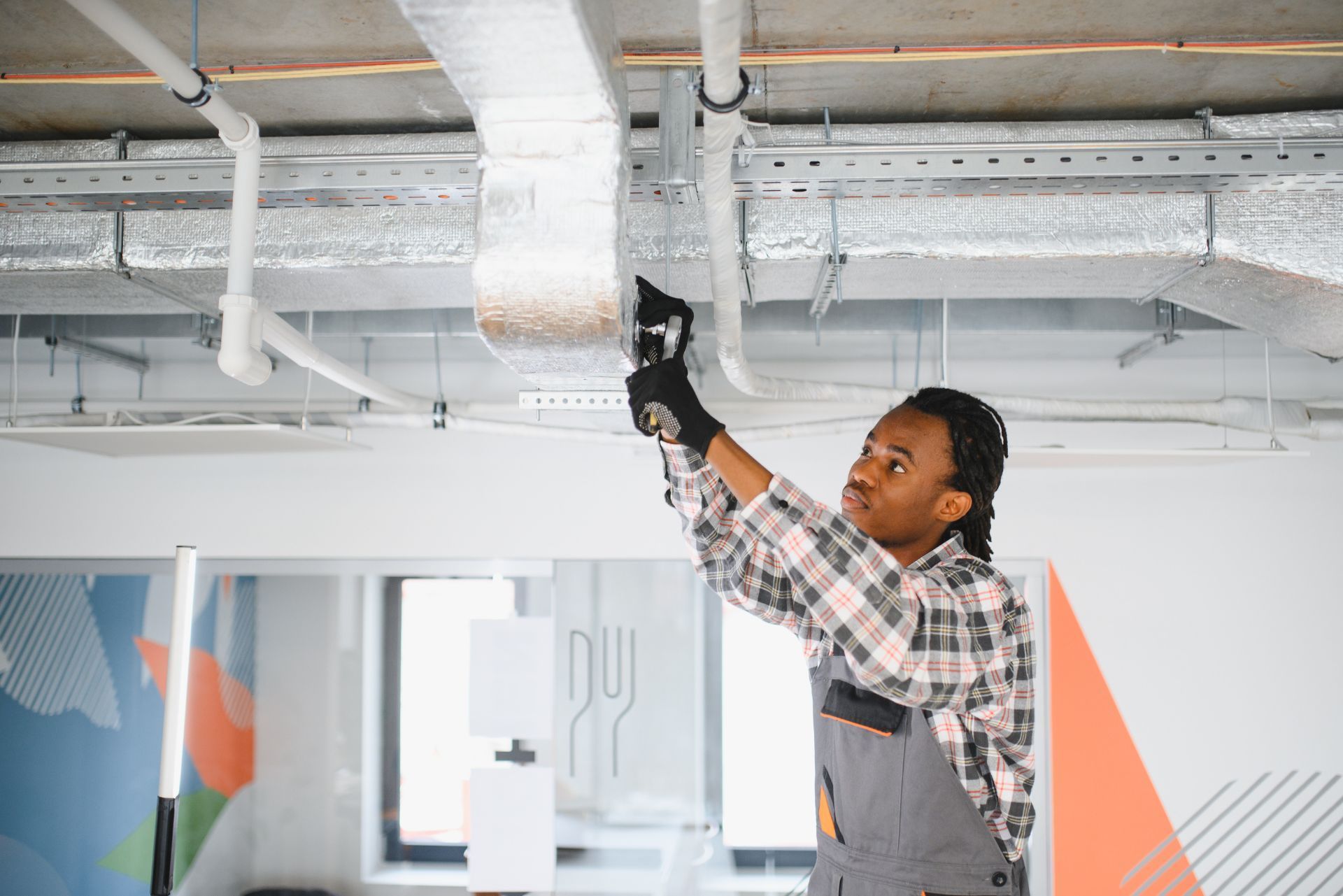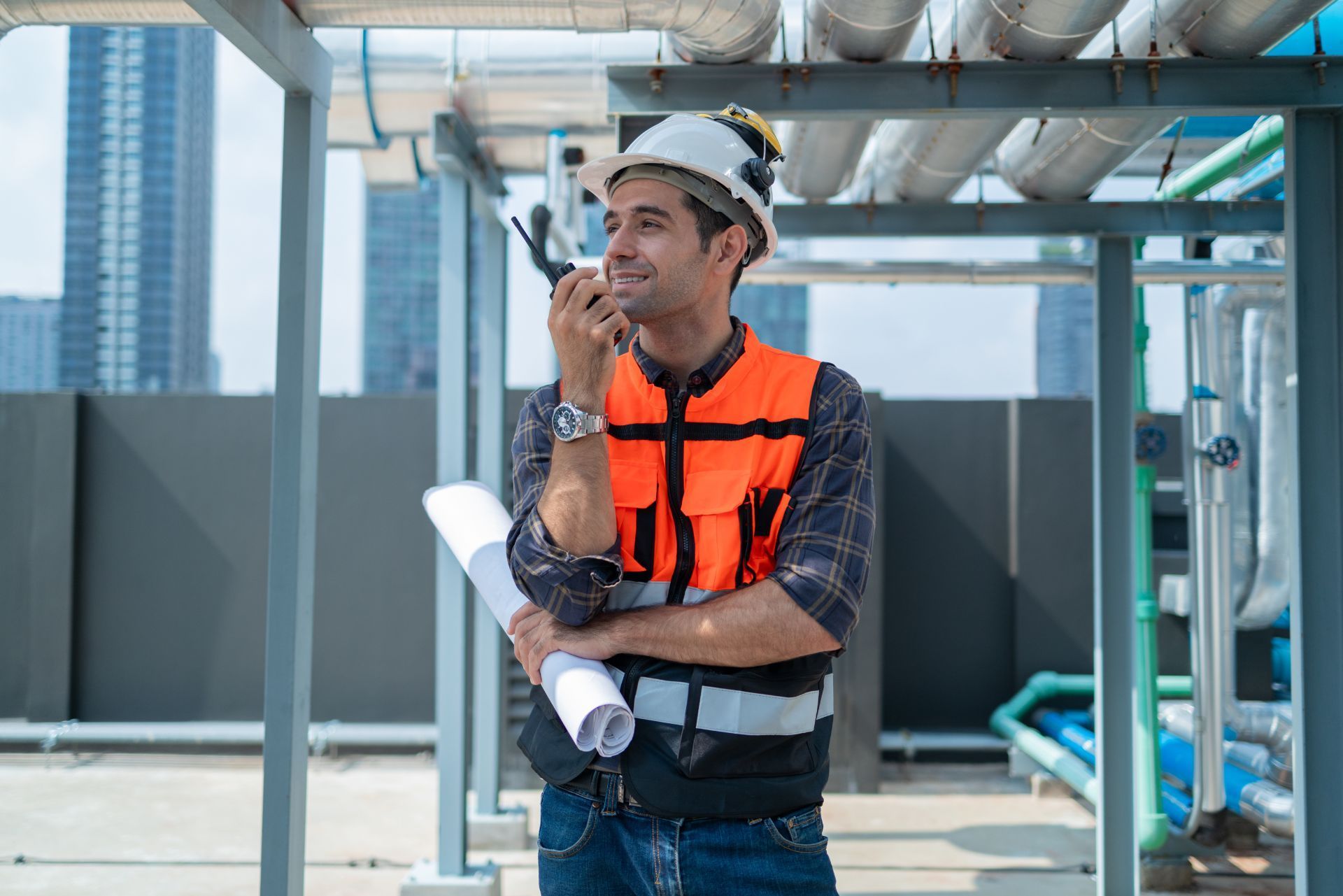Top 3 Recommended Policies

Mississippi HVAC contractors face a demanding mix of hot summers, humid air, and frequent storms that keep them busy year-round. Those same conditions also increase the risks that come with the job. Equipment damage, property claims, and weather-related disruptions can all take a toll on a business without the right insurance protection in place. This guide explains how HVAC contractor insurance in Mississippi works, the types of coverage that matter most, and how local weather patterns and market trends influence premium costs. With new state initiatives encouraging wind-resistant construction and more homeowners investing in storm protection, understanding your insurance options can help you stay compliant, competitive, and financially secure.
Understanding the Insurance Needs of HVAC Contractors in Mississippi
HVAC contractors face a variety of risks, from property damage and equipment loss to liability claims related to installation or repair work. In Mississippi, where weather events such as hurricanes and severe storms are common, these risks are amplified. Insurance policies tailored to HVAC businesses typically include general liability, commercial property insurance, workers’ compensation, and commercial auto insurance.
General liability insurance is essential for covering bodily injury or property damage claims that might arise during HVAC work. For example, if a contractor accidentally damages a client’s property or causes injury while on-site, this coverage helps protect the business from costly lawsuits. Additionally, commercial property insurance safeguards tools, equipment, and office spaces from damage or theft. This is particularly critical for HVAC contractors who rely heavily on specialized tools and machinery, which can be expensive to replace. The loss of such equipment not only affects the immediate project but can also lead to delays and loss of income, making this coverage a vital aspect of risk management.
Workers’ compensation is mandatory in Mississippi for businesses with employees, providing coverage for medical expenses and lost wages if a worker is injured on the job. Given the physical nature of HVAC work, this coverage is particularly important. The potential for accidents, such as falls from ladders or injuries from heavy equipment, underscores the necessity of having robust workers’ compensation insurance. Finally, commercial auto insurance covers vehicles used for transporting equipment and personnel, ensuring that contractors can operate smoothly without the fear of financial loss due to vehicle-related incidents.
Why Specialized Coverage Matters in Mississippi
Mississippi’s coastal location exposes HVAC contractors to unique risks, including wind damage and flooding. Insurance carriers often assess these risks when underwriting policies, which can influence premiums and coverage terms. Contractors working in high-risk zones may need additional endorsements or specialized policies to ensure adequate protection. For instance, some may consider flood insurance as a necessary addition, given the propensity for heavy rains and rising waters during storm season. This proactive approach can make a significant difference in the event of a disaster, ensuring that contractors can recover quickly and continue serving their clients.
Moreover, the state’s regulatory environment affects insurance availability and cost. According to industry reports, Mississippi ranks sixth nationally for insurance policy nonrenewals, with one out of every 67 policies not renewed in 2023. This reflects challenges insurers face in the region, especially concerning wind insurance on the Gulf Coast, where the number of carriers has dwindled, leading to higher rates for those remaining. Mark E. Strickland of SouthGroup Insurance Services highlights this trend, emphasizing the pressure on local insurance markets (WDAM). Additionally, HVAC contractors must stay informed about any changes in state regulations that could impact their insurance needs or coverage options. Engaging with local insurance agents who specialize in contractor insurance can provide valuable insights and help navigate the complexities of the market, ensuring that businesses are adequately protected against the evolving landscape of risks they face.

Market Trends Impacting HVAC Contractor Insurance in Mississippi
The heating and air-conditioning industry in Mississippi is dynamic, with growth in contracting services but a decline in wholesaling. IBISWorld projects the HVAC contracting market to reach $637.7 million by 2025, supported by 721 active establishments. In contrast, the heating and air conditioning wholesaling sector is expected to decline to $186.6 million by 2024, with only 56 establishments operating statewide (IBISWorld).
This growth in contracting services suggests increased demand for skilled HVAC professionals, which in turn affects insurance needs. More contractors mean greater competition but also higher exposure to liability risks, making comprehensive insurance coverage more crucial than ever. As contractors expand their service offerings, they may also encounter new challenges, such as the need for specialized training and certifications to meet evolving industry standards. This shift not only enhances the skill set of HVAC professionals but also elevates their marketability, further driving the demand for robust insurance policies that cover a wider range of services.
Additionally, homeowners in Mississippi are increasingly selective about their HVAC contractors. A recent survey found that 73% of homeowners choose their HVAC contractor based on previous experiences, marking a 44% increase from the previous year. This trend underscores the importance of maintaining a trustworthy reputation, which insurance can help protect by mitigating financial risks associated with claims (ACHR News). As customer expectations rise, contractors must not only deliver high-quality service but also ensure that they are adequately insured to cover potential mishaps, thereby reinforcing their credibility in a competitive market.
Insurance Costs and Regional Risk Factors
Insurance premiums for HVAC contractors in Mississippi are influenced heavily by regional risks such as hurricanes, windstorms, and flooding. Coastal property owners, for example, are facing a 16% increase in windpool insurance rates starting January 1, 2026, as announced by Insurance Commissioner Mike Chaney. These rate hikes reflect the increased risk insurers face in the Gulf Coast region, which inevitably trickles down to contractors working in these areas (Insurance Business America). This situation creates a pressing need for HVAC contractors to assess their insurance coverage regularly, ensuring it aligns with the heightened risks associated with their geographical location.
Furthermore, the average cost of a homeowner’s insurance policy in Mississippi for a $300,000 home is $3,380 annually, which is 30% above the national average. This higher cost environment affects HVAC contractors indirectly, as clients may be more cautious about repairs and installations that could impact their insurance premiums (Mississippi Today). In this context, HVAC contractors must navigate a delicate balance between providing necessary services and ensuring affordability for their clients, all while maintaining adequate insurance coverage to protect against potential liabilities. As the market evolves, contractors may also need to explore innovative insurance solutions tailored to the unique challenges they face in the Mississippi region.
Best Practices for HVAC Contractors to Manage Insurance Risks
Managing insurance risks effectively is essential for HVAC contractors to sustain their business and build client trust. Here are some best practices to consider:
- Invest in Comprehensive Coverage: Ensure your insurance policy covers all critical areas, including general liability, workers’ compensation, commercial property, and commercial auto. Consider additional endorsements for wind and flood risks if operating in coastal regions.
- Maintain Safety Standards: Implement rigorous safety protocols to minimize workplace accidents and property damage. This can help reduce insurance claims and potentially lower premiums.
- Document Work Thoroughly: Keep detailed records of all installations, repairs, and maintenance performed. Proper documentation can be invaluable in defending against liability claims.
- Stay Informed About Industry Trends: Monitor changes in insurance regulations, market conditions, and regional risks. Staying ahead of these trends allows contractors to adjust coverage and pricing strategies accordingly.
By following these guidelines, HVAC contractors can better protect their business assets and reputation while navigating Mississippi’s challenging insurance landscape.
Leveraging Insurance to Build Customer Confidence
Given that a significant majority of homeowners—73%—choose their HVAC contractor based on prior experiences, having robust insurance coverage can be a key differentiator. It signals professionalism and responsibility, reassuring clients that the contractor is prepared to handle any unforeseen issues.
Moreover, contractors who understand the impact of insurance on homeowners, especially in a state where insurance costs are rising, can better advise clients on how to minimize risks. For instance, collaborating with homeowners to install wind-resistant roofs not only helps reduce insurance premiums but also enhances the safety and longevity of HVAC installations.
In addition, HVAC contractors can enhance their service offerings by providing clients with educational resources about the importance of insurance in home maintenance. Hosting workshops or webinars can empower homeowners to understand their own insurance policies and the benefits of comprehensive coverage. This proactive approach not only builds trust but also positions the contractor as a knowledgeable partner in the home improvement process, fostering long-term relationships.
Furthermore, establishing a referral program that rewards clients for recommending the contractor to friends and family can be beneficial. When clients see that their contractor is not only insured but also invested in their community and customer satisfaction, they are more likely to refer others. This creates a cycle of trust and reliability that can significantly enhance the contractor’s reputation in the local market.

Conclusion: Navigating Mississippi’s HVAC Insurance Landscape
Mississippi HVAC contractors operate in a complex environment shaped by regional weather risks, evolving market dynamics, and rising insurance costs. With the industry poised for growth, securing the right insurance coverage is more important than ever to protect businesses from liability, property damage, and workforce injuries.
Understanding the nuances of insurance policies, staying informed about state-specific challenges like wind insurance rate hikes, and adopting best practices for risk management can empower contractors to thrive. Additionally, leveraging insurance as a tool to build trust with homeowners can set contractors apart in a competitive market.
For those in the HVAC industry, keeping abreast of these developments and proactively managing insurance needs will be key to long-term success in Mississippi’s heating and air-conditioning sector.
Contact Us
HVACInsure is fully licensed and permitted to sell contractor and commercial insurance in Mississippi.
We proudly serve clients throughout Mississippi and maintain partnerships with local Mississippi insurance carriers to ensure HVAC professionals receive compliant, affordable, and comprehensive coverage that meets project and regulatory requirements.
HVACInsure Focuses on Minnesota HVAC Contractor Insurance
Minneapolis – Saint Paul – Rochester – Bloomington – Duluth – Brooklyn Park – Plymouth – Woodbury – Lakeville – Maple Grove – Blaine – St. Cloud – Eagan – Burnsville – Eden Prairie – Coon Rapids – Apple Valley – Edina – Minnetonka – St. Louis Park – Moorhead – Mankato – Shakopee – Maplewood – Cottage Grove
HVACInsure Focuses on Mississippi HVAC Contractor Insurance
Jackson – Gulfport – Southaven – Biloxi – Hattiesburg – Olive Branch – Tupelo – Meridian – Greenville – Horn Lake – Pearl – Madison – Clinton – Starkville – Oxford – Brandon – Ridgeland – Columbus – Vicksburg – Pascagoula – Gautier – Ocean Springs – Laurel – Hernando – Clarksdale
Frequently Asked Question
Common HVAC Contractor Insurance Questions in Mississippi
These FAQs address common contractor questions. As HVACInsure grows, we will update this section with real client experiences and answers.
How does Mississippi's heat and humidity affect my HVAC insurance?
Mississippi's climate demands year-round AC. We cover the high-volume work, humidity challenges, and emergency cooling repairs your business handles.
What coverage do I need for hurricane and storm damage work?
Mississippi faces hurricane and severe storm risk. We cover emergency repairs and the surge in demand that follows weather events.
Do I need special coverage for casino and hospitality HVAC work?
The Gulf Coast has significant gaming and hospitality. We cover the quick-response requirements and liability exposure of keeping these facilities comfortable.
What about coverage for manufactured housing HVAC work?
Mobile homes are common in Mississippi. We understand the unique requirements and cover the specific liability of manufactured housing HVAC.
How do Mississippi's licensing requirements affect my insurance?
Mississippi requires HVAC contractor licensing. We ensure your coverage meets State Board of Contractors requirements.
Can I get coverage for both coastal and inland Mississippi work?
Absolutely. Mississippi's geography varies. We structure coverage that works from the Gulf Coast to the Delta region.

Still have questions?
Can’t find the answer you’re looking for? Please chat to our friendly team!

About The Author: James Jenkins
I’m James Jenkins, Founder and CEO of HVACInsure. I work with HVAC contractors and related trades to simplify insurance and make coverage easier to understand. Every day, I help business owners secure reliable protection, issue certificates quickly, and stay compliant so their teams can keep working safely and confidently.
Recognized by National HVAC Trade Associations
These trusted organizations set best practices and standards that carriers rely on when underwriting HVAC risks.
Membership signifies adherence to HVAC industry standards and contractor best practices.


